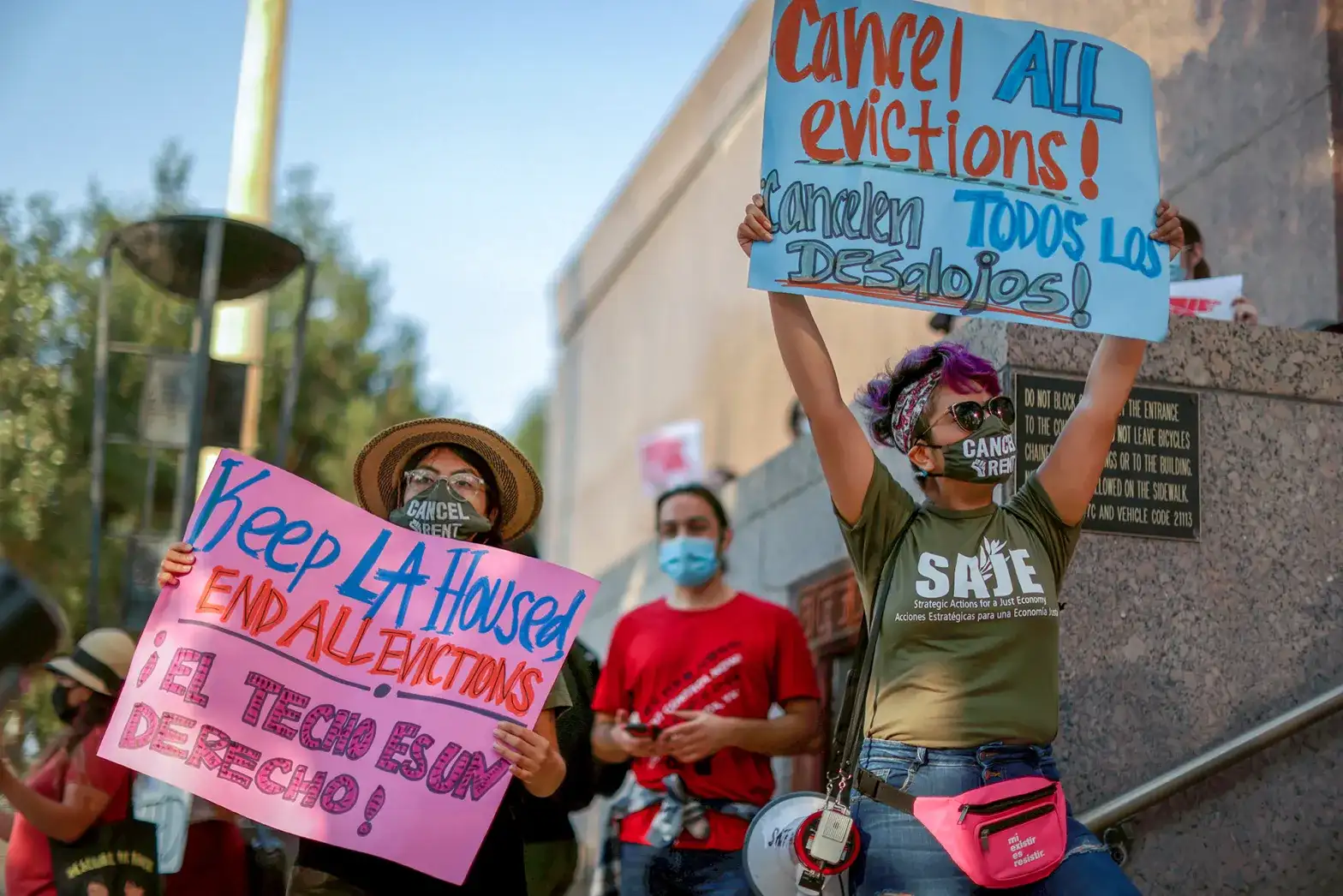More than 100,000 California renters whose applications for COVID-era rental assistance were denied or delayed by the state’s housing department will be given a second chance, owing to a new legal agreement reached between the state and a coalition of anti-poverty and tenant rights organizations.

California Promised To Audit Denials, Expand Appeals, And Provide More Information
More assistance is not assured. However, as part of the settlement reached at the end of last month, California’s Housing and Community Development Department promised to audit previous denials and increase multilingual access for tenants who do not speak English as a first language.
It also decided to expand the appeals procedure for applicants and provide more extensive explanations when an application is denied. It also promised to provide additional information about the race, ethnicity, and location of those who were denied assistance.
California’s housing agency received $5.2 billion in federal assistance funding in 2021 to assist suffering tenants in keeping up with rent while the state’s economy stalled during the pandemic’s peak. The experiment came to an end in March 2022.
READ ALSO: San Diego Housing Commission Offers Grants And Loans To Help Moderate-Income Households
Housing Department Admits No Responsibility But Pays Advocacy Groups $1.1 Million
Later that summer, the advocacy groups Alliance of Californians for Community Empowerment, PolicyLink, and Strategic Actions for a Just Economy filed a lawsuit against the department in Alameda County Superior Court.
According to their lawsuit, the state denied numerous renters without offering an acceptable explanation and provided little or no redress to those who thought their petitions were wrongfully denied. According to the coalition’s study of state data, the agency rejected over 130,000 applications, accounting for roughly 30% of the total.
The settlement concludes that case. The housing department admitted no responsibility but agreed to pay the advocacy groups $1.1 million in attorney expenses.
“Providing relief to California renters and landlords affected by the COVID-19 pandemic has always been our priority,” the Department of Housing and Urban Development said in an unattributed written statement. “We are committed to working with our partners to bring resolution and support to those remaining in the application pipeline.”
According to a state overview, during the first year of the pandemic, the state distributed more than $4.5 billion to pay down the rent of more than 360,000 homes. The average amount of help was $12,246.
Gov. Gavin Newsom lauded the program in the summer of 2022 as the “largest and most successful eviction protection and rent relief program in the country.”
Waiting For A Rent Reduction
The department also committed to clear its pending application pool within six months as part of the settlement.
At a news conference this week, Faizah Malik, an attorney with Public Council who represents charities, stated that “over 100,000 households are still waiting for a decision.”
“We are delighted to have reached this historic agreement, which will vastly improve the process for the remaining pending applications, and our hope is that it will result in more relief reaching the hands of Californians in need.”
Two tenants with pending applications also spoke at the Monday news session.
“I don’t want to go back to the street,” Mario Hercules stated through a Spanish interpreter, explaining that he still owed $14,000 in rent. “I don’t want to be in a shelter, and I certainly don’t want to be homeless.”
Blake Phillips stated that he used all of his credit cards to pay his rent while waiting for state assistance. “Imagine what I need right now,” he explained. “I got so far behind because of this program that it literally destroyed my life.”
Approximately 150,000 tenants reported facing eviction when they filled out the application.
“The whole purpose of this really massive federal investment of funds was to prevent people from being evicted, and yet there was no effort made to track evictions and who was actually kept in their house because of this money,” Madeline Howard of the Western Center on Law & Poverty, another legal organization representing the coalition, said.
Help For Tenants
Since the beginning of the pandemic, tenants and anti-poverty organizations have criticized the state’s rental aid measures. Many tenants reported linguistic hurdles or a lack of technological know-how and access required to complete an application.
Despite the large sum of money, many qualified candidates complained about a lack of public outreach, claiming they were unaware of the program’s existence.
According to a state auditor’s office study, once applications began to pour in, the state’s housing department was slow to process them and then get aid out the door.
Advocates for tenant rights echoed this complaint.
According to research co-produced by some of the parties to last week’s settlement, only 16% of the almost 500,000 applicants seeking rent relief from the state received assistance last year. Another finding: those who did receive a check reported a four-month median wait time.
At the time, a representative for the state’s housing agency contested the figures.
The settlement applies to everyone who applied for help through the state’s Housing is Key program before April 1, 2022, and whose application is still ongoing or was denied after June 6, 2022. Tenants with questions regarding the progress of their application should contact the program’s hotline at 833-430-2122 or visit the application page.
READ ALSO: San Diego Housing Commission Offers Grants And Loans To Help Moderate-Income Households




